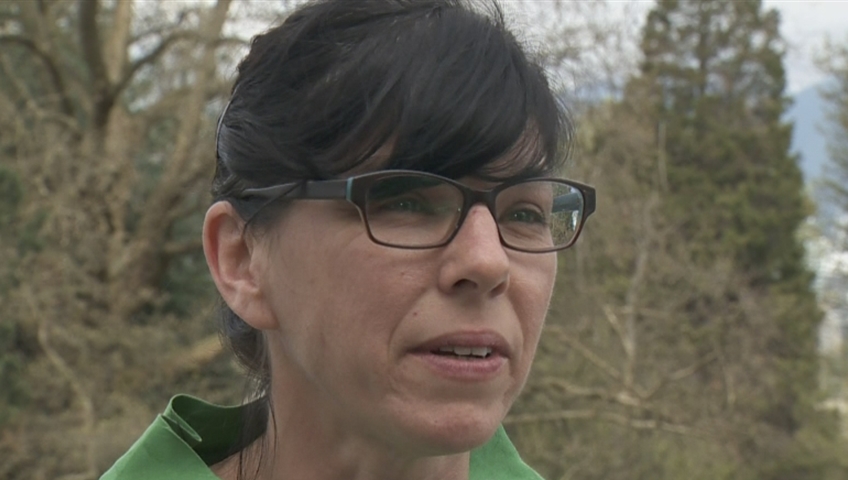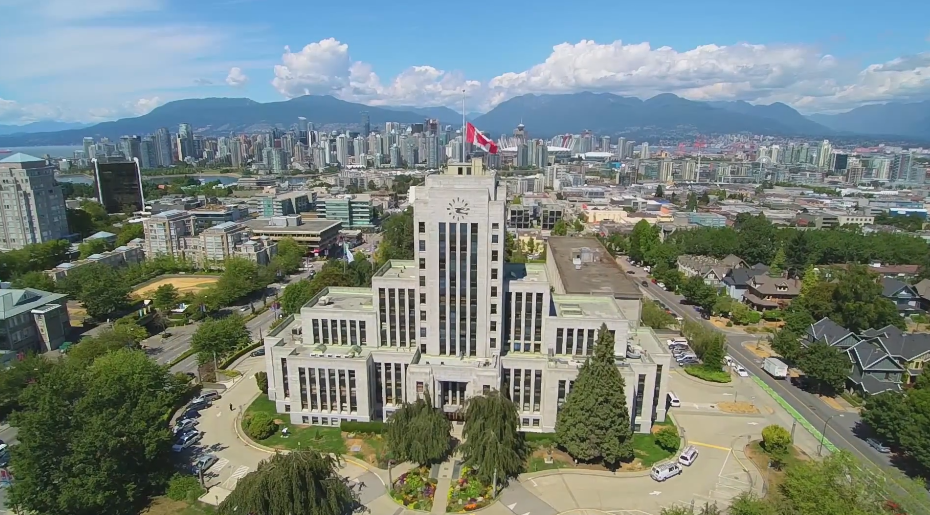Vancouver city council has asked the provincial government to let permanent residents vote in civic elections.

The move is “important for the confidence and trust in our democracy,” said a motion that council passed unanimously on Wednesday.
WATCH: From July 2016 — Quebec Immigrant Investor Program affects B.C. real estate

Permanent residents are refugees, caregivers, skilled workers and sponsored family members.
But they’re also investor immigrants, a class that has come under increasing scrutiny in recent years.
These are wealthy people — until this year, they needed to have net worth of at least $1.6 million to become investor immigrants in Canada. That threshold was raised to $2 million in March.
They’re invited to make an interest-free investment in Quebec of $1.2 million — in exchange for that, they receive permanent residency on the recommendation of the provincial government.
Applicants are supposed to intend to settle in Quebec. But a vast majority have moved to the Vancouver area instead.
This chart shows where immigrant investors who came to Canada via Quebec were located as of 2016:
Participants in these programs have been linked to soaring home prices in Vancouver, and elsewhere. They’re also known to pay lower taxes than refugees. And research has shown that many of them spend lots of time in their home country.
Quebec has tightened the rules around this program — it’s no longer easy to land in Quebec and then move to B.C.
But more than 19,000 members of this immigrant class have come to the City of Vancouver over the course of three decades, according to Statistics Canada.
If B.C. lets permanent residents vote in Vancouver’s elections, then investor immigrants will have that right, too.
READ MORE: The City of Vancouver just moved to let permanent residents vote in civic elections
Canada accords numerous rights to permanent residents: to work, to study, to receive social benefits such as health care.
But they can’t vote or run for public office.

Get daily National news
Eleven Canadian municipalities are looking to extend voting rights to permanent residents; such rights have already been extended to them in 45 countries, including seven U.S. jurisdictions.
But for immigration lawyer Richard Kurland, the prospect of letting permanent residents vote is concerning.
“My concern is the practical nature of it,” he said in an interview with Global News.
Kurland said Canada’s major federal political parties have grappled with issues around fundraising and memberships — permanent residents can join the parties and vote at their conventions, if not the elections themselves.
Such issues would be taken to an “entire new level” in the City of Vancouver.
READ MORE: Report recommends Canada revive wealthy immigrant program linked to soaring home prices
“If you’re going to allow voting by permanent residents, you also have to control for potential abuse,” he said.
“It now means that politicians at the municipal level can knock on the doors of permanent resident applicants and say, please donate to me.”
And the City of Vancouver, he said, “does not have the apparatus to distinguish between a permanent resident residing and domiciled in Vancouver, and someone who’s not.”
An estimated 60,000 permanent residents were living in Vancouver in 2011, according to the city’s motion.
That figure came via Fresh Voices, an organization that works to improve the lives of young immigrants and refugees.
Data obtained from Statistics Canada indicates that there were almost 15,000 investor immigrants in Vancouver as of the end of 2010 — that alone represents about a quarter of the figure cited by Fresh Voices.
And the number of investor immigrants in Vancouver grew to over 19,000 by 2016.
By way of comparison, just over 10,000 votes separated Gregor Robertson and second-place finisher Kirk LaPointe in the 2014 mayoral election.
READ MORE: How over 46,000 wealthy immigrants took a back door into Vancouver and Toronto’s housing markets
Municipal governments, Kurland said, are “geared to take care of the most vulnerable.”
And with investor immigrants in the mix, he thinks it could be more difficult to press for social services such as social housing and mental health spaces at the municipal level.
“What you’re doing is tilting the scales in favour of property and against social welfare,” Kurland said.
“And they’re going to have the time and resources to get their way politically.”
Also of concern to him is the amount of time that investor immigrants spend in Vancouver.
“But right now, it’s a blank cheque.”
Wednesday’s motion was pushed by Andrea Reimer, a Vancouver councillor who will not run in October’s election.
After learning of Fresh Voices in 2012, she met with them and heard their concerns about permanent residents not being able to vote.
Council listened too — it endorsed the idea of giving permanent residents the civic vote and sent it off for study.
In the course of her work as a councillor, Reimer heard many personal stories from permanent residents about why they came to Canada in the first place.
“I have heard some incredibly compelling and profound stories from permanent residents who are here because they fell in love with somebody who happened to be Canadian,” she said.
“Who are here because they’re fleeing incredible trauma and violence in their home countries, who are here because they had an educational opportunity, there’s so many other reasons.”
“The idea that any one of those people should be denied the same rights as me, to vote, it’s hard for me to square that with the conversations I have with many non-voters, which is the majority of citizens in Vancouver.”
If permanent residents are coming and choose to participate and engage, “we should be as welcoming as we can possibly be within the constraints,” she said.
Reimer said many of Kurland’s concerns about permanent residents and investor immigrants apply to citizens, too.
“If it’s such a problematic class of immigration, for permanent residents, my argument would be, get rid of the class of immigration,” Reimer told Global News.
“Why would you make everyone suffer because a previous federal government decided to encourage a class where there’s issues around various aspects of the way that they immigrate or spend time in Canada?”
READ MORE: It just got tougher to take Quebec’s back door into Vancouver and Toronto real estate
Reimer did say, however, that Kurland had a “fair point” when he talked about the time that permanent residents spend in Vancouver.
But she also said citizens have even more freedom to move.
“If you’re a citizen, you don’t have to spend any length of time here,” Reimer said.
“You too may be absent from Canada for most, if not all of the time, and it doesn’t affect your citizenship status at all, and you’d still be able to vote.”
On the day that the motion passed at city council, Reimer said there was a “very, very tight timeline” for the province to enact the change before November’s municipal election.
The provincial government would likely have to change the Local Elections Act to make it happen.
Even if it doesn’t come into effect by November, Reimer said it would be a way for the city to say, “we see you, we acknowledge the contributions that you’re making.
“And we’d really like to find a way to make those contributions mean more than they mean right now.”











Comments